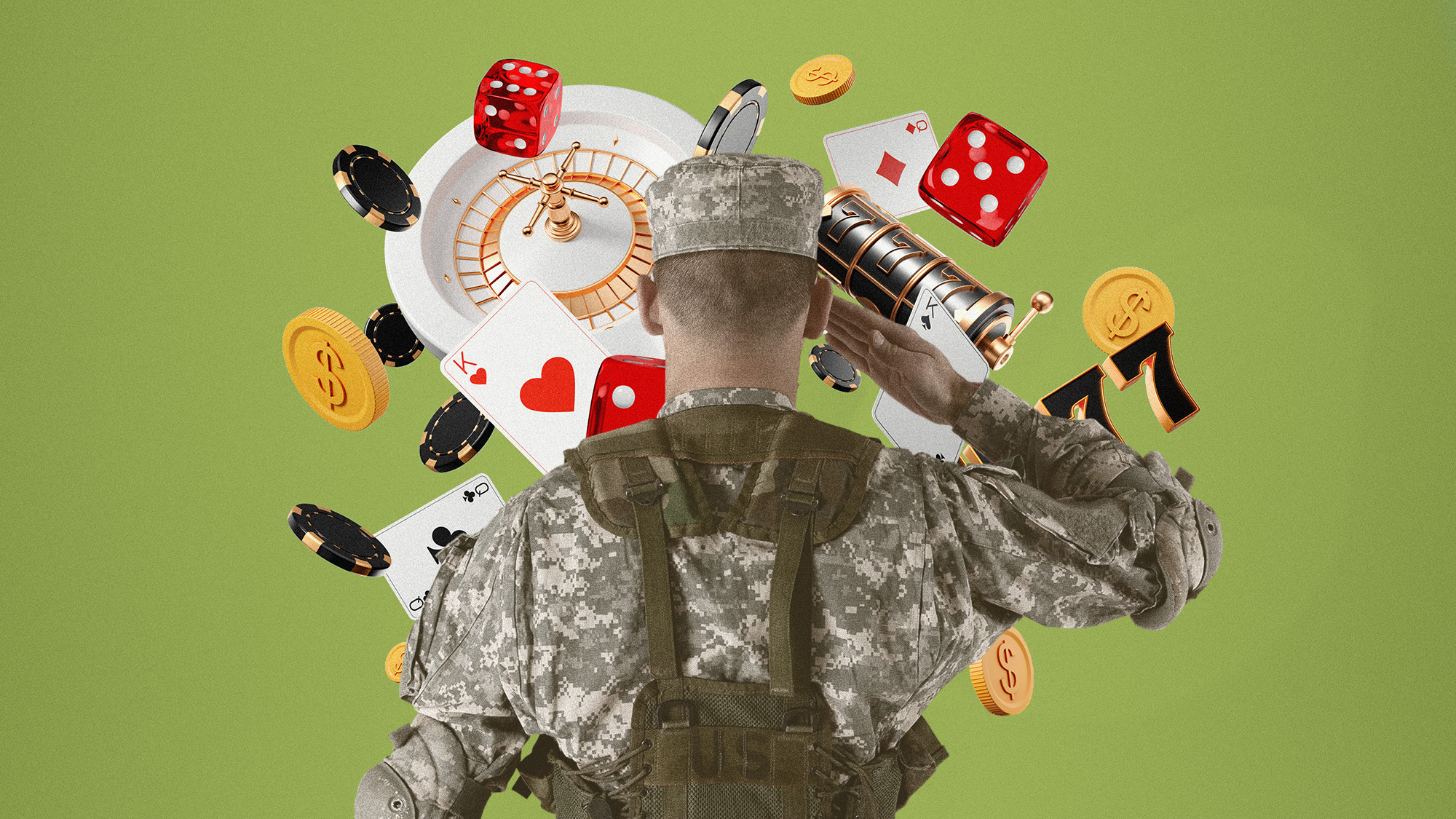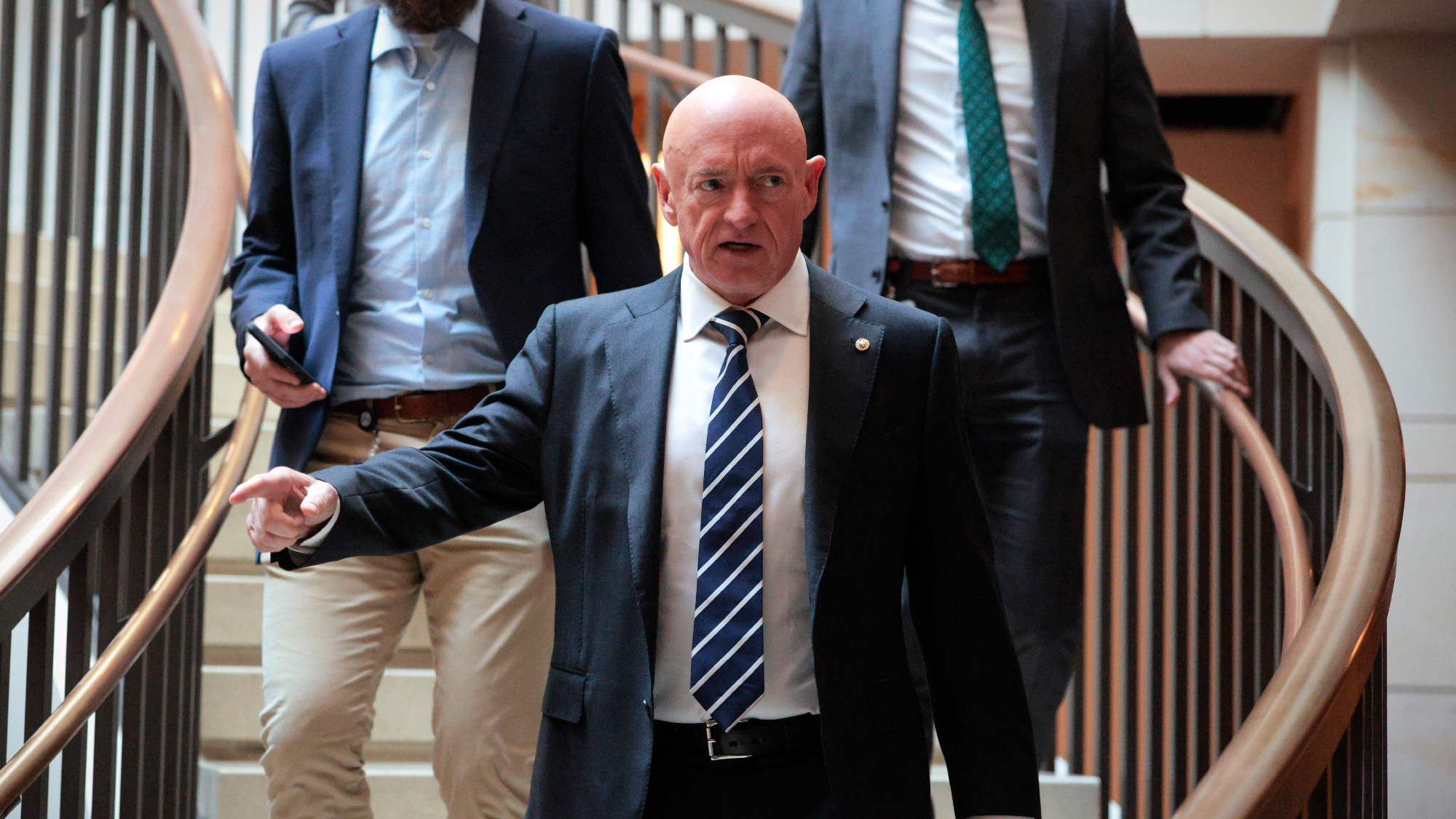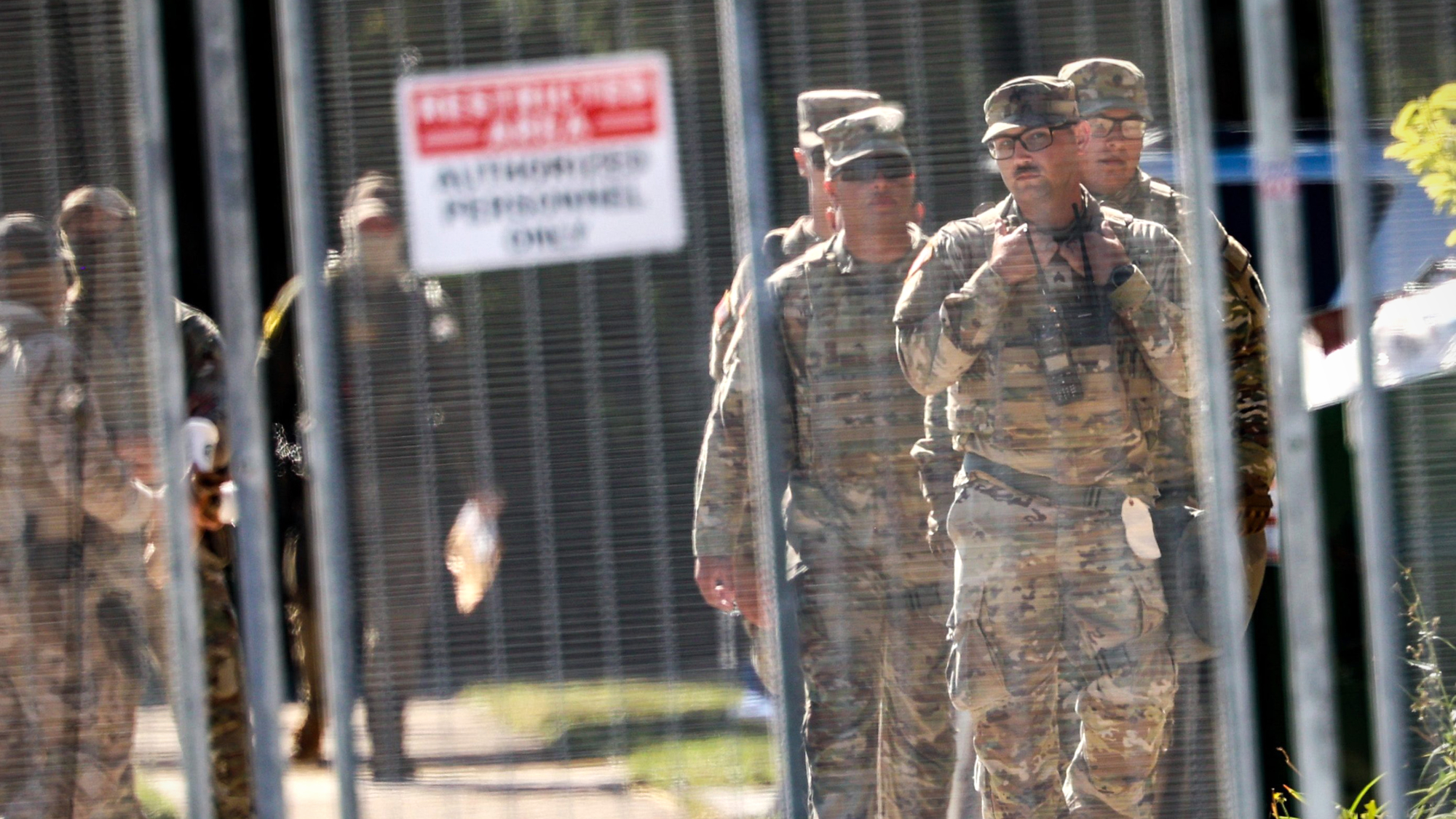Recreation or addiction? Military base slot machines rake in millions.
There are several thousand slot machines on military bases


A free daily email with the biggest news stories of the day – and the best features from TheWeek.com
You are now subscribed
Your newsletter sign-up was successful
You might not find a full casino at U.S. military bases, but that doesn't mean gambling isn't happening. Much of the gambling is sanctioned and encouraged by the U.S. armed forces in the form of slot machines on military bases. As a result, researchers say gambling addiction in the military has reached critical levels, with many soldiers stationed overseas finding a dangerous solace in the habit.
How prevalent are slot machines at US military bases?
The machines are coordinated by the Army Recreation Machine Program (ARMP) and are located on military bases across the world (the ARMP runs slot machines for the Army, Navy and Marines, while the Air Force has their own program). The exact number of slot machines is unclear. Officially, there are "1,889 slot machines in 79 locations abroad, including Korea, Japan and Germany," Neil Gumbs, the general manager of the ARMP's installation program, told Wired. However, the National Council on Problem Gambling claims there are over 3,100.
While there are no table games at these bases, the military has more than made up for it in profit from the slot machines. In 2023, the ARMP "brought in $64.8 million in revenue with $48.9 million in net proceeds," while in the prior year it "made $63.1 million in revenue with net proceeds of $47.3 million," said Wired. During the peak year of 2017, these machines brought in over $100 million, according to the Government Accountability Office.
The Week
Escape your echo chamber. Get the facts behind the news, plus analysis from multiple perspectives.

Sign up for The Week's Free Newsletters
From our morning news briefing to a weekly Good News Newsletter, get the best of The Week delivered directly to your inbox.
From our morning news briefing to a weekly Good News Newsletter, get the best of The Week delivered directly to your inbox.
The machines "are often found on bases where there is precious little to do," said NPR. This includes Diego Garcia, a small island in the Indian Ocean, where the "Navy runs 52 slot machines." Notably, these slots can be "played by service members as young as 18 — individuals who wouldn't be allowed to enter most casinos in the U.S. before they turn 21."
What is happening as a result?
These slot machines are causing widespread gambling addictions among soldiers, experts say, and "gambling is a blind spot in the military's approach to mental health," said Task & Purpose. This is because each military branch "treats problem gambling differently, ranging from a mental health issue to a 'crime against society' like prostitution." And data on military gambling "comes through voluntary surveys, responses to which are often not truthful," making it easier for people to hide their addiction.
The government itself has acknowledged that there are rampant issues with military gambling addiction. "Pathological gambling disorders among service members and veterans is soaring, with more patients receiving a diagnosis in the first half of 2024 as in all of 2022," according to VA research obtained by CNBC. It is "not terribly surprising, because with accessibility and availability increases we tend to see a rise in unhealthy engagement," psychologist Dominick DePhilippis said to the outlet.
Certain studies "have found the prevalence of problem gambling and gambling disorder among veterans to be as high as 10.7% in some parts of the U.S.," said CNBC. Many military advocates are trying to raise awareness of the issue on a broader scale. Several gaming companies have been writing to "Senate appropriators to impel them to fund gambling behavior research in the Pentagon's fiscal 2026 budget bill," said Military.com.
A free daily email with the biggest news stories of the day – and the best features from TheWeek.com
Despite the push for betting research, the Defense Department "rarely focuses on the behavioral health aspect of the disorder," former Army Staff Sgt. Dave Yeager said to Military.com. Without a behavioral health referral, soldiers with gambling problems should "seek out an anonymous 12-step program or substance abuse treatment."
Justin Klawans has worked as a staff writer at The Week since 2022. He began his career covering local news before joining Newsweek as a breaking news reporter, where he wrote about politics, national and global affairs, business, crime, sports, film, television and other news. Justin has also freelanced for outlets including Collider and United Press International.
-
 The ‘ravenous’ demand for Cornish minerals
The ‘ravenous’ demand for Cornish mineralsUnder the Radar Growing need for critical minerals to power tech has intensified ‘appetite’ for lithium, which could be a ‘huge boon’ for local economy
-
 Why are election experts taking Trump’s midterm threats seriously?
Why are election experts taking Trump’s midterm threats seriously?IN THE SPOTLIGHT As the president muses about polling place deployments and a centralized electoral system aimed at one-party control, lawmakers are taking this administration at its word
-
 ‘Restaurateurs have become millionaires’
‘Restaurateurs have become millionaires’Instant Opinion Opinion, comment and editorials of the day
-
 Judge blocks Hegseth from punishing Kelly over video
Judge blocks Hegseth from punishing Kelly over videoSpeed Read Defense Secretary Pete Hegseth pushed for the senator to be demoted over a video in which he reminds military officials they should refuse illegal orders
-
 US to send 200 troops to Nigeria to train army
US to send 200 troops to Nigeria to train armySpeed Read Trump has accused the West African government of failing to protect Christians from terrorist attacks
-
 ‘Bad Bunny’s music feels inclusive and exclusive at the same time’
‘Bad Bunny’s music feels inclusive and exclusive at the same time’Instant Opinion Opinion, comment and editorials of the day
-
 Hegseth moves to demote Sen. Kelly over video
Hegseth moves to demote Sen. Kelly over videospeed read Retired Navy fighter pilot Mark Kelly appeared in a video reminding military service members that they can ‘refuse illegal orders’
-
 Why is Trump’s alleged strike on Venezuela shrouded in so much secrecy?
Why is Trump’s alleged strike on Venezuela shrouded in so much secrecy?TODAY'S BIG QUESTION Trump’s comments have raised more questions than answers about what his administration is doing in the Southern Hemisphere
-
 ‘Care fractures after birth’
‘Care fractures after birth’instant opinion Opinion, comment and editorials of the day
-
 Supreme Court bars Trump’s military use in Chicago
Supreme Court bars Trump’s military use in ChicagoSpeed Read
-
 Trump unveils new ‘Trump class’ US warships
Trump unveils new ‘Trump class’ US warshipsSpeed Read
